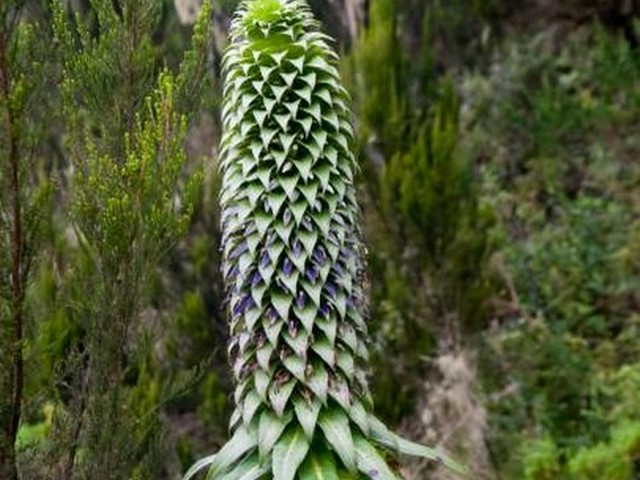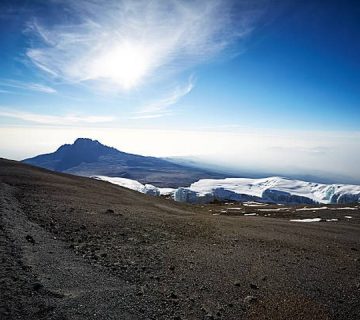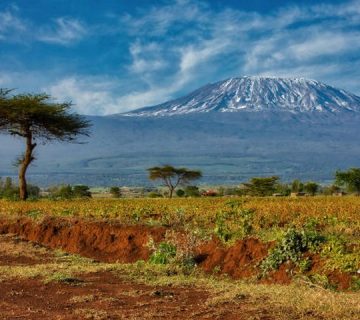Eco-Tourism Partnerships for Kilimanjaro Trekkers: Exploring the Roof of Africa Responsibly
Welcome to the magical journey of climbing Mount Kilimanjaro, where majestic landscapes and awe-inspiring vistas meet sustainable travel practices. At the Kilimanjaro Centre for Trekking and Ecotourism (KCTE), we champion a vision where adventure aligns with ecological responsibility, ensuring that the beauty of Africa’s tallest peak is preserved for generations to come. In this blog, we’ll explore the vital role of eco-tourism partnerships in enhancing your trekking experience while contributing positively to the environment and local communities.
Why Eco-Tourism Matters on Kilimanjaro
Mount Kilimanjaro is not just a mountain; it’s an ecosystem rich with flora and fauna, a source of life and culture for local communities, and a beacon for adventurers worldwide. Eco-tourism ensures that our exploration respects and nurtures this natural and cultural heritage. By choosing eco-tourism partnerships, trekkers can turn their adventure into a force for good—supporting conservation efforts, reducing environmental impact, and improving the well-being of local people.
The Role of KCTE in Promoting Sustainable Trekking
As a leading outfitter in Tanzania, KCTE is at the forefront of integrating sustainable practices into the trekking experience. We collaborate with local environmental groups, participate in trail maintenance programs, and ensure that our operations adhere to the highest standards of eco-friendliness. Our guides are trained not only in safety but also in eco-conscious trekking practices, making sure that every step taken on the mountain contributes to the preservation of this iconic landmark.
Partnering for a Greener Climb
Conservation Initiatives
KCTE partners with various conservation organizations to conduct and support initiatives aimed at protecting Kilimanjaro’s natural environment. This includes tree planting campaigns, water conservation efforts, and wildlife protection activities. By booking your climb with KCTE, you become part of these essential conservation efforts, helping to ensure the sustainability of Kilimanjaro for future adventurers.
Supporting Local Communities
Eco-tourism is not just about preserving nature; it’s also about empowering the people who call these landscapes home. KCTE works closely with local communities to ensure that the benefits of tourism are shared widely. This includes hiring local staff, providing fair wages, and supporting community projects such as schools and health centers. When you trek with us, you’re supporting a model that uplifts local communities economically and socially.
Reducing Environmental Impact
Our eco-tourism partnerships focus heavily on minimizing the environmental footprint of our treks. We adhere to Leave No Trace principles, ensuring that we pack out all waste, use energy-efficient technologies, and limit water usage. Our meals are prepared using locally sourced ingredients, reducing the carbon footprint associated with food transport. These measures not only protect the environment but also enhance the natural experience for all trekkers.
How You Can Be an Eco-Friendly Trekker
Being an eco-friendly trekker starts with choosing the right tour operator—like KCTE—that values sustainability. Additionally, you can contribute by following these simple yet effective practices:
- Use Reusable Gear: Opt for reusable water bottles, bags, and other gear to minimize waste.
- Stay on Designated Trails: This reduces soil erosion and disturbance to native plants and wildlife.
- Respect Wildlife: Observe animals from a distance, and do not feed or attempt to touch them.
- Support Local: Purchase souvenirs from local artisans and eat at local restaurants to help support the local economy.
FAQs About Eco-Tourism and Trekking Kilimanjaro
Q1: What is eco-tourism?
A1: Eco-tourism is responsible travel to natural areas that conserves the environment, sustains the well-being of the local people, and involves interpretation and education.
Q2: How does eco-tourism benefit the environment?
A2: Eco-tourism helps preserve landscapes and wildlife, supports conservation projects, and promotes awareness about environmental challenges.
Q3: Can eco-tourism improve my trekking experience?
A3: Absolutely! Eco-tourism promotes deeper connections with nature, enriches your understanding of local cultures, and enhances your sense of fulfillment by knowing you’re traveling responsibly.
Q4: Why should I choose KCTE for my Kilimanjaro trek?
A4: KCTE is dedicated to sustainable practices, has deep roots in local communities, and provides a top-notch trekking experience guided by experts in eco-friendly tourism.
Why Trek with KCTE?
Embarking on a Kilimanjaro climb with KCTE is not just about achieving a personal milestone; it’s about doing so in a way that respects the natural world and benefits the local communities. Our eco-tourism partnerships are designed to provide you with an unforgettable, responsible trekking experience.
Ready to take the step towards a sustainable adventure on Mount Kilimanjaro? Book your climb with Kilimanjaro Centre for Trekking and Ecotourism (KCTE) today and join us in the movement towards a greener, more sustainable world. Together, let’s tread lightly and celebrate the beauty of Kilimanjaro.




